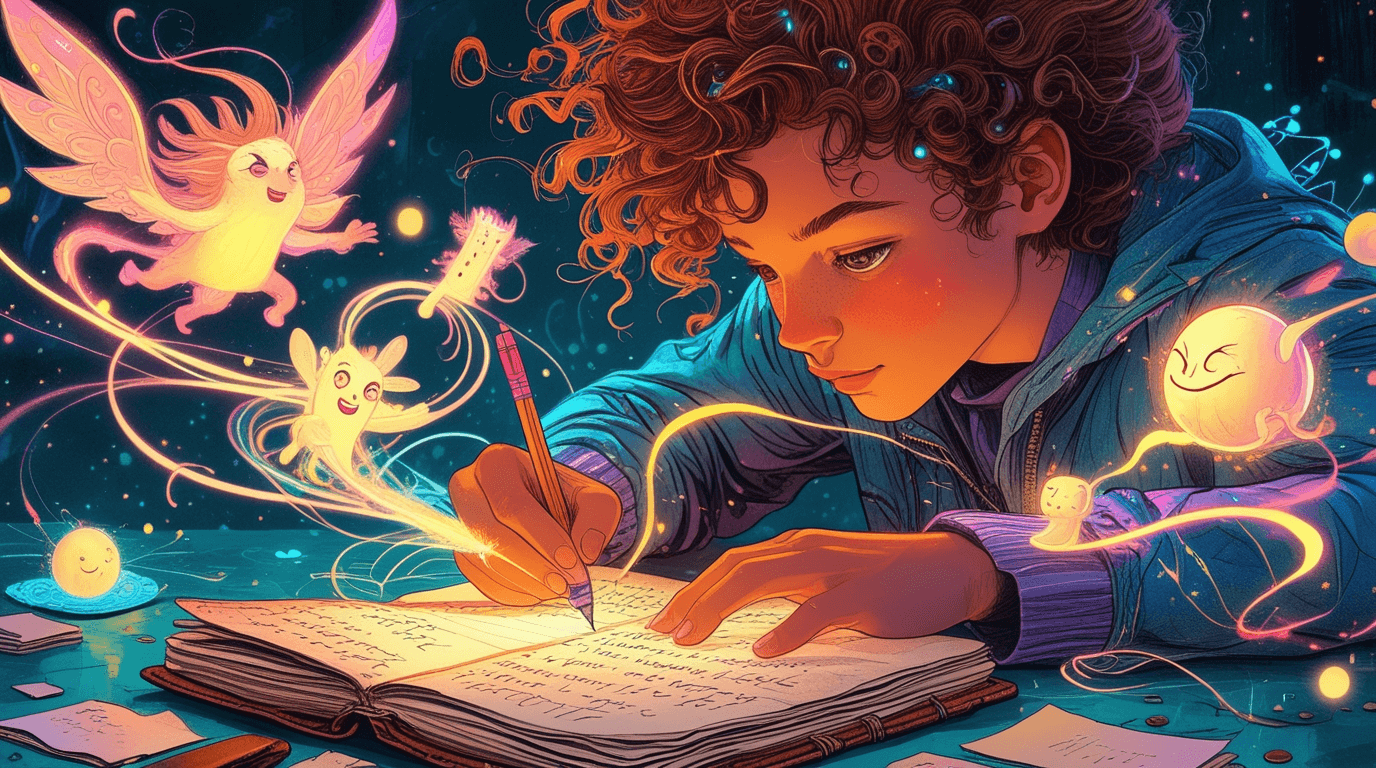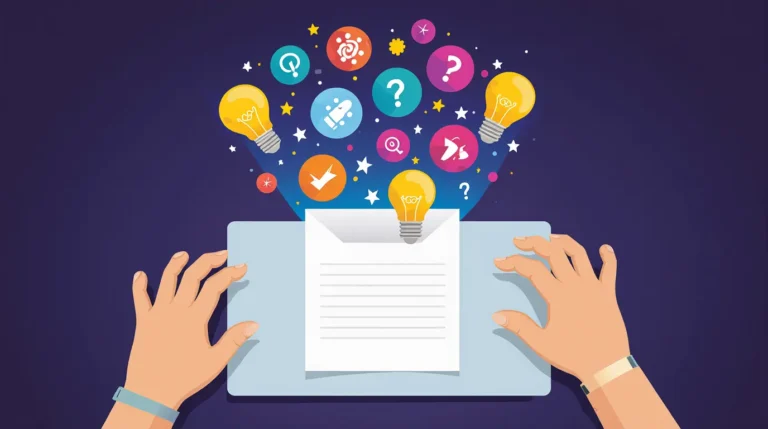How to Use AI to Generate Writing Prompts (Guide for 2025)
Table of Contents
Wondering how to use AI to generate writing prompts? Unlock limitless creative potential with AI. Whether you’re a teacher, writer, or parent, this guide will help you master powerful tools like ChatGPT to create ideas effortlessly.
🚀 Introduction: Why AI Is a Game-Changer for Writers
Whether you’re a student, author, teacher, or a curious parent helping your child write a story — writer’s block is real.
What if you could tap into a smart assistant that offers fresh, endless writing ideas in seconds?
Welcome to the world of AI writing prompts.
In this guide, you’ll learn how to use AI tools to create, organize, and evolve writing prompts tailored to your needs.
🤖 What Are AI Writing Prompts?
AI writing prompts are creative ideas generated by artificial intelligence — often through tools like ChatGPT, Claude, or Notion AI. These prompts are customized based on:
- Themes or genres (fantasy, sci-fi, romance)
- Tone (funny, dark, poetic)
- Audience (kids, teens, adult readers)
- Language level (basic to advanced)
Instead of manually brainstorming, AI can instantly deliver dozens of prompts based on just a few instructions..
🧠 Why Use AI Writing Prompt Generation?
Another major benefit of learning how to use AI to generate writing prompts is the ability to fight writer’s block with endless inspiration. These tools help writers of all levels stay productive and creative.
| Benefit | Why It Matters |
|---|---|
| 🌀 Endless ideas | No more blank-page syndrome |
| ⏱️ Saves time | Generates 10+ ideas in seconds |
| ✍️ Customizable | Adjust for age, topic, tone |
| 🌐 Multilingual | Prompts in English, French, Arabic, etc. |
| 📚 Great for education | Use in classrooms, workshops, or homeschooling |
🛠️ Step-by-Step: How to Generate AI Writing Prompts
✅ Step 1: Choose Your AI Tool
Some of the most effective tools:
🔗 Also check our AI Tools Guide for Parents & Teachers
✅Step 2: Craft a Smart Prompt
Use the formula:
“Generate [type] writing prompts for [audience] about [topic], in [tone/style].”
💡 Examples:
- Generate 10 fantasy writing prompts for teenagers with an adventurous tone.
- Give me 5 short story prompts for kids learning English as a second language.
By following this simple process, you’ll master how to use AI to generate writing prompts that are tailored, original, and instantly usable.
✅ Step 3: Customize & Iterate
Once you get results:
Ask for alternatives: “Make these prompts humorous instead of dark.”
Ask for more detail: “Expand prompt #3 into a story outline.”
Ask for variation: “Make these more poetic.”
🎯 Use Cases by Audience
👩👧 For Parents & Kids:
- Create bedtime stories with their names in them.
- Use prompts to start storytelling games.
🎓 For Students:
- ESL writing practice
- SAT essay prep
- Creative writing homework
👩🏫 For Teachers:
Example prompt: “Generate 10 science-themed writing prompts for 5th graders about the solar system.”
Use AI to generate classroom-specific prompts by grade and curriculum.
📌 Pro Tips for Better Prompts
Before diving into pro tips, it’s important to understand that learning how to use AI to generate writing prompts is a skill you can improve over time.
| Tip | What to Do |
|---|---|
| 🎯 Be specific | Include genre, age, tone |
| 📝 Use examples | Ask AI to follow a pattern |
| 💬 Refine with feedback | “Make it more mysterious” |
| 📚 Organize | Save prompts in Notion or Google Docs |
🌐 Internal Resources
🧰 Top Free AI Tools in 2025 (Mobile & Desktop)
🔎 How Parents Can Use AI to Spark Their Kids’ Creativity
📖 AI Tools for Teachers & Classrooms
🔗 External Resources
📥 Want Prompts Sent Weekly?
Whether you’re a teacher, a parent, or a lifelong learner, knowing how to use AI to generate writing prompts gives you a serious creative advantage in 2025 and beyond.
👉 Subscribe to The Human Prompts Lab for:
- Weekly AI prompt collections
- Family-friendly creative ideas
- Classroom-ready teaching tools
This Lab is a core part of our mission. You can learn more about who we are and why we started this project on our About Us page
🧠 Become the most creative person in the room — with a little help from AI.








2 Comments